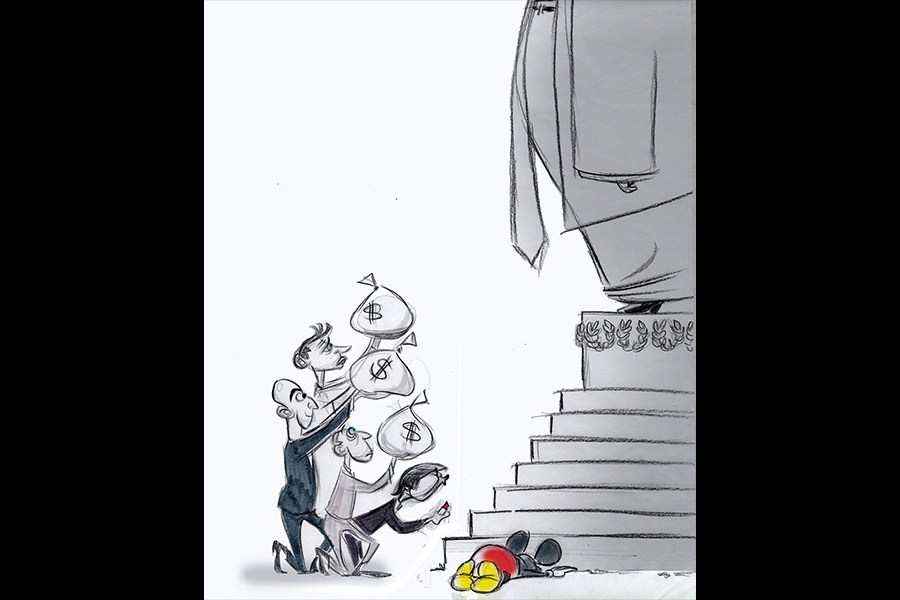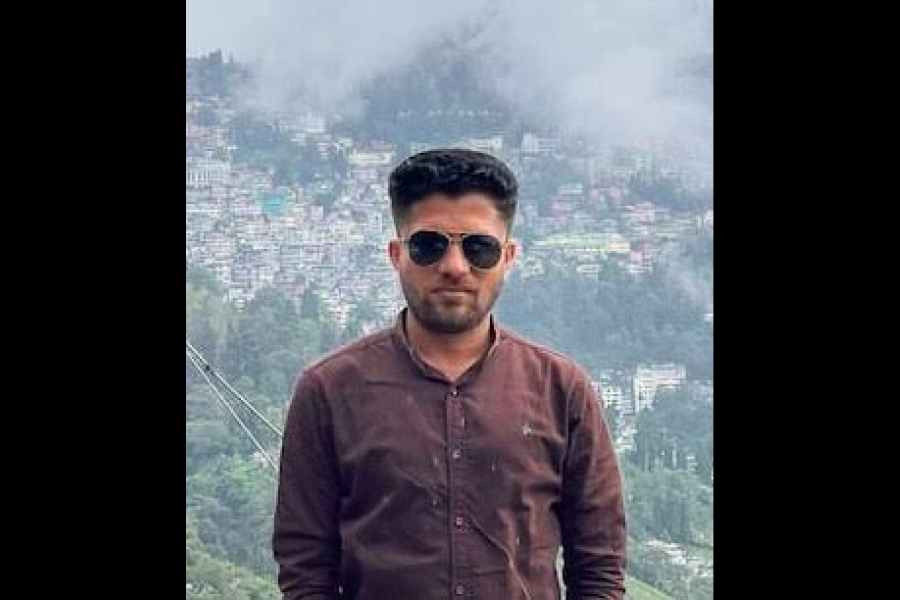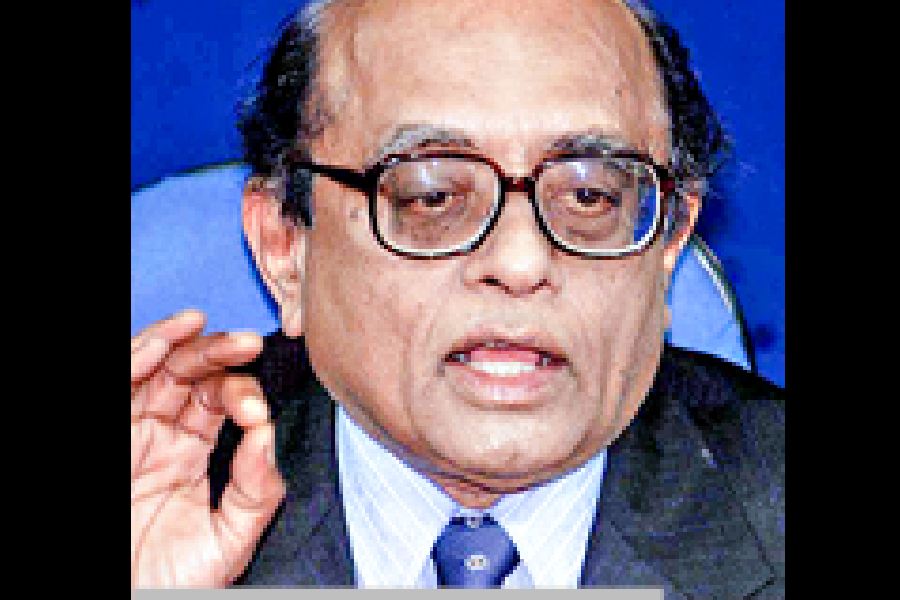Spot the message
Sir — Autocorrect is perhaps rightly called the gremlin inside the smartphone which can turn our text exchanges into a game of chance. Paneer Lababdar was recently turned into Paneer Labrador and PayPal into papal in two separate incidents. However, come to think of it, autocorrect might actually be a true visionary. A papal account could revolutionise faith for millions of people. With just a few taps on one’s phone, one could confess on the go, update one’s sacraments and check prayer status at any time. Perhaps it is time we paid more attention to the messages that autocorrect is trying to send us.
Sujata Pakrashi, Calcutta
Enlightened minds
Sir — The article, “The wandering mind” (Dec 21), by Saikat Majumdar made for interesting reading. The columnist compares the intellectual curiosity of the author, Nirad C. Chaudhuri, to that of Apu, the teenage protagonist of Aparajito. Majumdar writes that both Chaudhuri and Apu were disillusioned with the syllabus-oriented, conventional mode of college education and eventually embarked on a path of auto-didactic learning. However, structured learning is also necessary owing to its importance in the competitive job market. Perhaps a balanced approach to education, incorporating both traditional and non-traditional methods, can prove beneficial for students.
Amit Brahmo, Calcutta
Sir — The parallels drawn by Saikat Majumdar between the wandering minds of Nirad C. Chaudhuri and Apu are accurate. In this context, it would be appropriate to cite the example of one of the greatest self-taught polymaths, Rabindranath Tagore. Tagore described regimented, formal education as “mills of rote learning with no freedom for creativity”. He envisioned an education system that would dispel ignorance and usher in the light of knowledge. It is unfortunate that in its present form, the education system in India fails to encourage students to exercise their minds freely.
Kajal Chatterjee, Calcutta
Landmark accord
Sir — In a landmark decision, around 195 countries have signed an accord at the United Nations conference on biodiversity to protect 30% of the planet’s land and oceans by 2030. This is a welcome step. At present, only 17% of terrestrial and 7.75% of marine areas are protected. However, even these regions have become vulnerable owing to pollution and environmental degradation. Hearteningly, the agreement has recognised the rights of indigenous people as key to protecting biodiversity. The deal also rightly commits developed countries to shoulder the majority of the finances for conservation efforts.
G. David Milton, Maruthancode, Tamil Nadu
Guards up
Sir — The sudden spurt in coronavirus infections in some parts of the world poses a threat. This underlines the need for constant genomic surveillance to monitor the emergence of new variants of the virus. Vaccination and adherence to Covid protocols have helped India restrict the contagion in the past. It should keep it guards up.
M. Jeyaram, Sholavandan, Tamil Nadu
Wrong target
Sir — In “Let city art breathe” (Dec 21), Jade Lyngdoh highlights an important concern regarding the police weaponising the law to target artists. Graffiti has been used all over the world for the beautification of public spaces. Yet, a group of Italian graffiti artists was arrested in Ahmedabad. This is disconcerting.
K. Nehru Patnaik, Visakhapatnam
Lax law
Sir — The wild life (protection) amendment bill 2022, which was recently passed by Parliament, claims to provide better safeguards for India’s flora and fauna. However, the bill raises several concerns (“Missed chance”, Dec 19). The transport of captive wildlife had been banned by law. But the new bill proposes an exception to allow the transfer or transport of elephants for “religious or any other purposes”. This is certain to increase their exploitation. Second, the bill will give sweeping powers to the Centre to regulate invasive species, thus eroding the powers of the state governments. The bill needed more deliberation.
S.S. Paul, Nadia
Up in the air
Sir — The social welfare and women empowerment minister of Tamil Nadu, P. Geetha Jeevan, has said that the Bharatiya Janata Party will not make any gains in the state in the 2024 general elections. Her claim may prove to be true as two of the biggest national parties, the Congress and the BJP, have not been able to win any seats in the southern state without the help of Dravidian parties. But given the widespread disillusionment with the M.K. Stalin-led dispensation, it would be prudent for the Dravida Munnetra Kazhagam leaders to not be complacent about returning to power.
N. Mahadevan, Chennai










